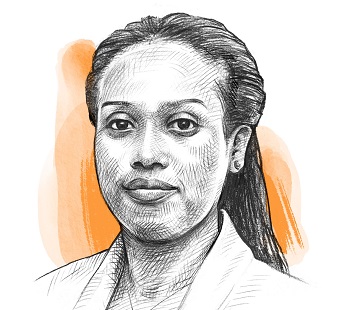EcoRef - Programme to Support Ethiopia’s Economic Reforms
Objective
-
€15mBUDGET
-
21/01/2020PROJECT START
-
36 monthsDURATION
Since he was appointed in March 2018, the Ethiopian Prime Minister, Mr. Abiy Ahmed, has launched an unprecedented reform programme in the country. He has undertaken to carry out ambitious economic reforms to liberalise and modernise the country’s economic model and make it more sustainable.
Following the meetings between the Ethiopian Prime Minister and French President in 2018 and 2019, the two governments have expressed their desire to establish a privileged partnership between France and Ethiopia.
A Memorandum of Understanding has been signed by the Chief Executive Officer of AFD to deploy budget support for the economic transition (a EUR 85m sovereign loan combined with EUR 15m of technical assistance). On 6 June 2019, a second Memorandum of Understanding was signed between AFD, the Ethiopian Ministry of Finance and Expertise France. It establishes the conditions under which Expertise France implements part of the EcoRef technical assistance programme.
EcoRef: supporting the implementation of economic reforms in Ethiopia
The Programme to Support Ethiopia’s Economic Reforms (EcoRef) aims to assist the Ethiopian Ministry of Finance with the implementation of the country’s second Growth and Transformation Plan. It is based on an operational strategy built on three main principles.
1) The mobilisation of integrated resident expertise: To ensure there is a long-term transfer of knowledge, the technical assistance programme is mobilising five resident experts integrated in the structures supported. Their presence throughout the project is creating a relationship of trust and helping ensure that the knowledge is properly transferred.
2) The mobilisation of eight short-term pools of expertise: the resident experts are supported by eight short-term pools of expertise pre-selected by thematic areas, such as the environment, gender, energy, legal issues and finance. These experts are mobilised at the request of the structures supported.
3) Learning by doing: the programme aims to promote sustainable capacity building for the beneficiaries through learning by doing, a method to transfer knowledge implemented using “active pedagogy” activities.
• At the individual level, the resident experts for the project give advice and disseminate their knowledge on a daily basis to a partner from the local team to help them fulfil their mandate.
• At the organisational level, the experts assist their partner with decision-making, which strengthens the leadership of the beneficiary structures.
A programme based on three components
Component 1: Support the development of sustainable public-private partnerships (PPPs) with the national PPP unit and Ethiopian Electric Power
This component aims to strengthen the institutional environment of PPPs in Ethiopia in order to promote the emergence of sustainable PPPs that comply with international good practices. It is deploying the following activities:
• Support for the identification and preparation of PPP projects (feasibility studies in accordance with environmental, climate, social and gender-related requirements);
• Preparation of the bidding documents;
• Award and contractual arrangements of PPP projects;
• Support for the monitoring of the PPP contracts concluded;
• Financing of feasibility studies.
Component 2: Support the good governance of public companies at the Public Enterprises Holding and Administration Agency (PEHAA) and Ministry of Finance (MOF)
This component aims to improve the oversight, performance, governance and management of public companies in Ethiopia. It is deploying the following activities:
• Creation of a national data repository for State companies;
• Strategic assessment of the public companies selected by PEHAA and the MOF;
• Capacity building programme for the public companies and PEHAA;
• Creation of a strategy for the Industrial Park Development Corporation (IPDC) and the Ethiopian industrial park sector;
• Preparation of consolidated reports on the financial and operational performance of public companies.
Component 3: Assist the Ethiopian Ministry of Finance with the implementation of the national economic reform programme
The Home-Grown Economic Reform Program (HGER) was launched in August 2019 and defines the macroeconomic, structural and sectoral reforms that underpin Ethiopia’s development plans and private sector-led growth. The Ministry of Finance is being assisted with the implementation, monitoring, control and communication of the outcomes of these reforms. The main activities deployed are as follows:
• Recruitment, entry into service and training of a procurement specialist;
• Development of a strategic partnership with the Institute of Political Studies (ISP) to monitor the economic reforms;
• Recruitment of a specialist in resource mobilisation;
• Support for the energy sector roadmap;
• Recruitment of an SOE/HGER advisor;
• Advice to the MOF on strategic issues.


